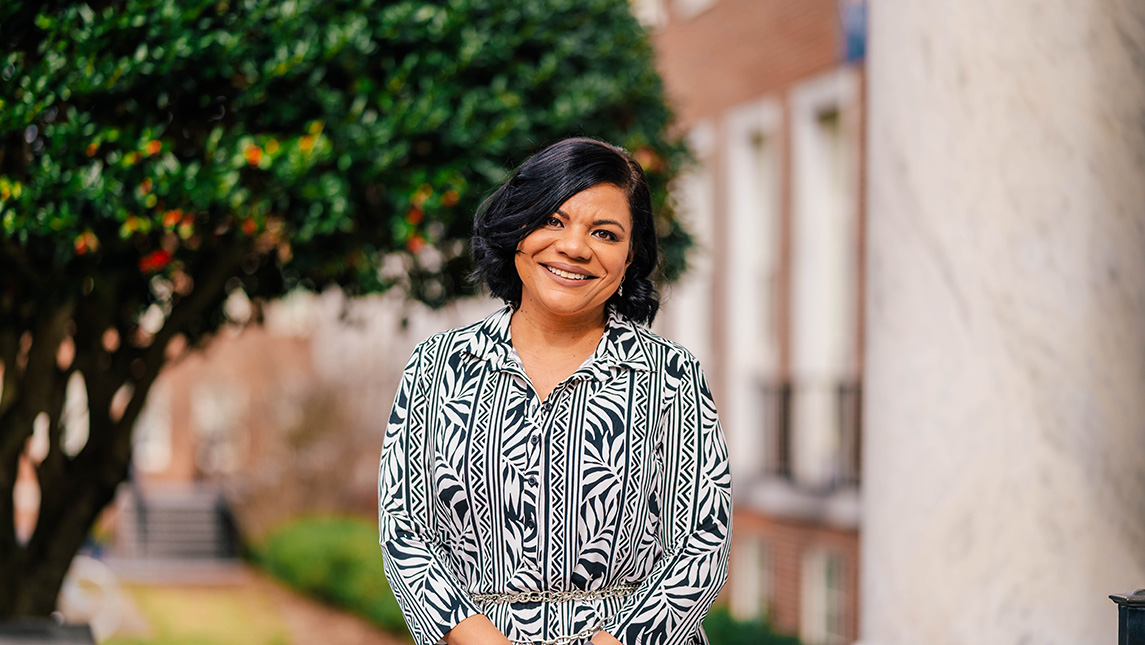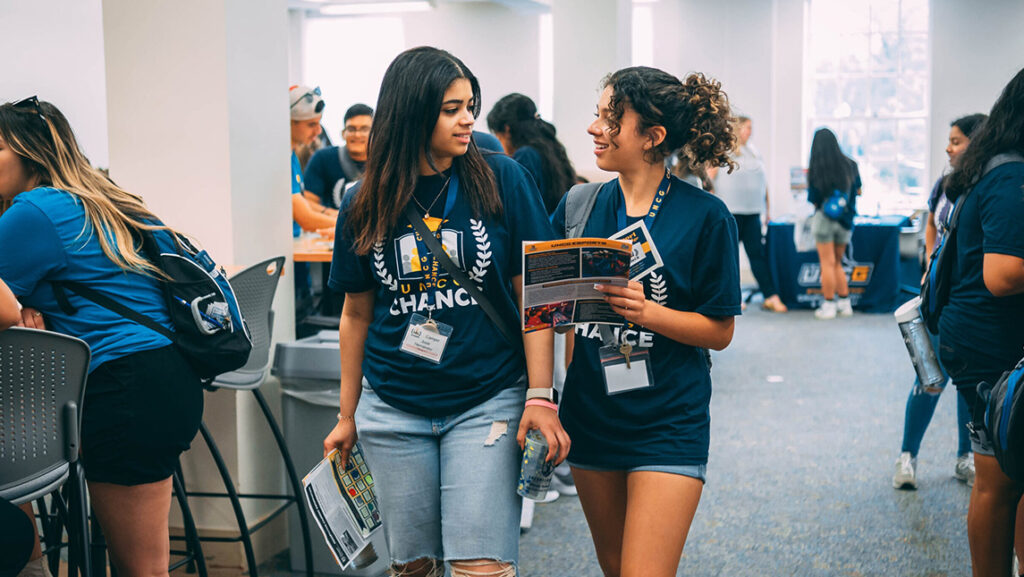Growing up in a suburb of Cleveland, Ohio, Jeannette Wade was curious about her neighbors.
“If you did three cartwheels one way, there were mansions. If you did three cartwheels the other way, there was a food desert,” Dr. Wade says. “I started reading more about what this means – how some of my neighbors had a lower life expectancy, while others had every resource you could ever dream of.”
Now, as an associate professor in UNC Greensboro’s Department of Public Health Education and director for the new Human Health Sciences bachelor’s degree program, Wade builds upon these childhood musings in her research about how society can impact health. She aims to understand Black women’s perspectives as they navigate a variety of challenges, including the aftermath of COVID and the health care system.
Wade’s research is rooted in a Black feminist perspective, which considers people’s health in the context of history, systems, and policies.
“We study where Black women are today, but we can’t forget where they’ve been and how that affects where they are now,” she says.
Exploring young Black women’s experiences
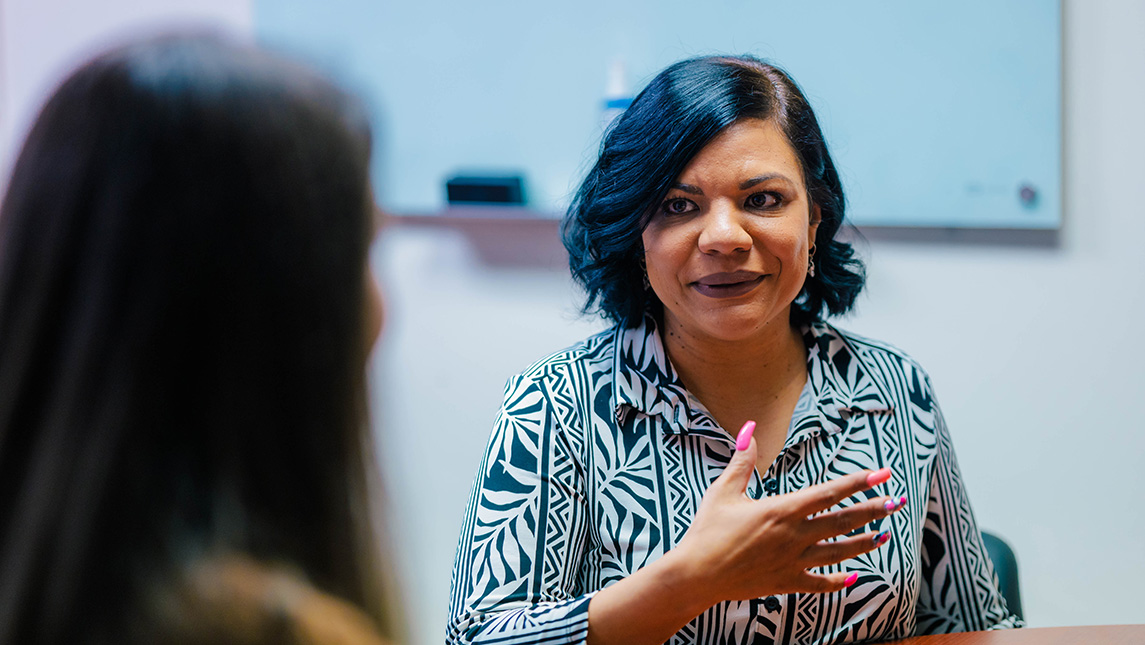
In a recently published paper, Wade used focus groups to investigate how Black women between the ages of 18 to 25 perceived the need to be strong before and during the pandemic.
“When you think about the idea of ‘the strong Black woman,’ she’s always emotionally sound. She’s never bothered. She can take care of everybody,” Wade says. “She can literally do everything and still be beautiful and unbothered.”
The pressure to embody this ideal can have costs, Wade says.
Past research has shown that Black women who identify closely with being strong at all times, hiding their emotions, and always helping others – traits included in the Superwoman Schema established by Wade’s collaborator Dr. Cheryl Woods Giscombe – have higher stress, which can be linked to a variety of health issues.
But as the pandemic progressed, Wade made an unexpected discovery. While they reported heightened racism and sexism in 2020, young Black women felt decreased pressure to embody the strong Black woman persona.
“They talked about having a break from being strong, which was a happy, unexpected finding, because they said once the whole world was in tears and falling apart, they didn’t have to put on that face anymore,” Wade says.
Participants mentioned they prioritized their self-care and connecting to their own emotions during this tumultuous time.
“The more we talked to the younger Black women, the more they used words like self-care,” Wade says. “So, this project definitely makes me excited about the future for younger Black women.”
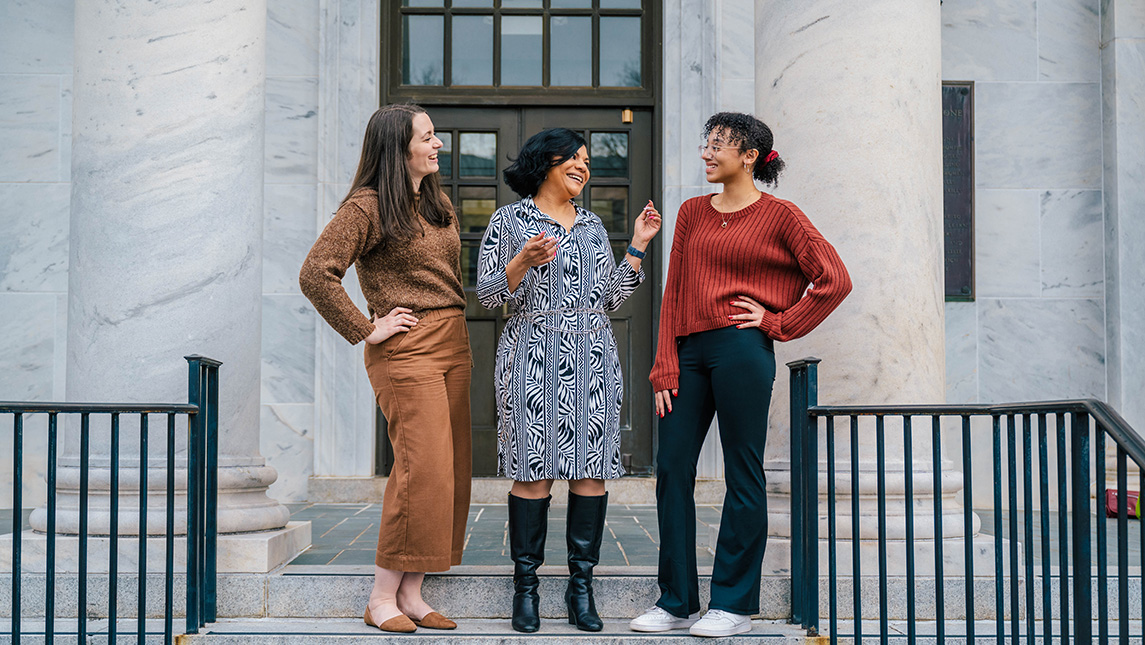
Insight into action
Wade is driven to apply her findings in the community – a passion stemming from a past working in community health, including with young moms.
“Those experiences I had in the community were invaluable,” she says. “I know how to connect with folks who are hard to research, and I recognize the need to look at the big picture.”
Wade’s holistic thinking and connection to the community are integral to her work, such as in a past study where she examined young Black women’s barriers to participating in health programs.
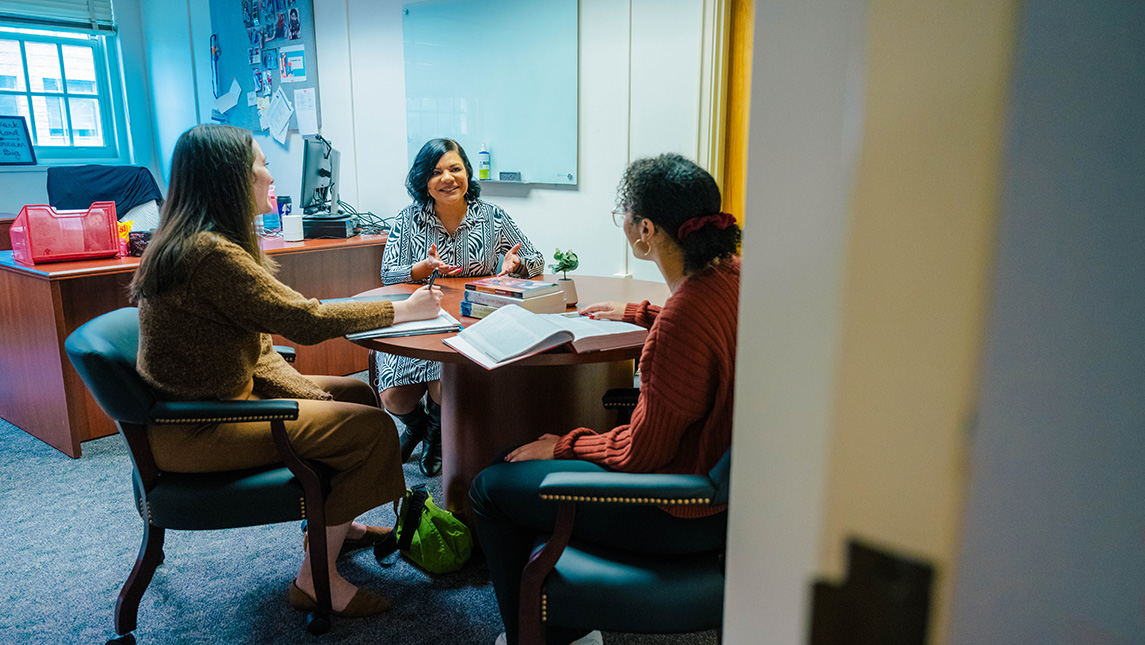
“Black women are the least likely to go to an intervention, and if they go, they’re the least successful in terms of retention and long-term health outcomes,” she says. “So, there’s a concern with how we’re recruiting them and then what the curriculum is that we deliver once we get there.”
Wade observed participants were seeking health programs that emphasize engaging discussions.
“In Black culture, sharing information is a lot more acceptable than being taught, so that top-down approach to interventions wasn’t going to work,” Wade says. “They want to share recipes and the good things they’ve learned about how to be healthy.”
Wade is interested in using these findings to design a health program tailored for young Black women. The program would hone self-esteem and address specific challenges related to communicating with doctors.
Across Wade’s research projects and applied efforts, she works closely with students. Mentoring graduate students and teaching undergraduates are some of the most rewarding aspects of her job, she says.
Wade knows that this mentorship can make all the difference in a person’s life. During her own undergraduate studies, Wade had a Black female professor who changed the course of her career.
“I get to pay that forward,” she said. “I get to be the person to see the light in people that other folks may not see the light in. I love that about my job.”
Story by Rachel Damiani
Photography by Sean Norona, University Communications

